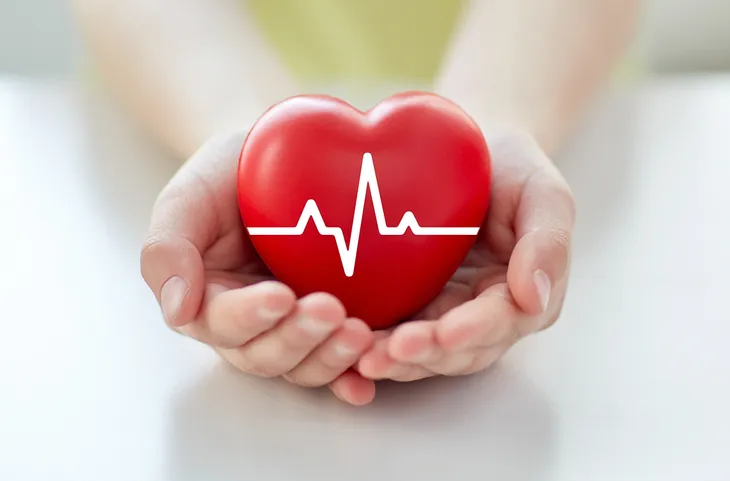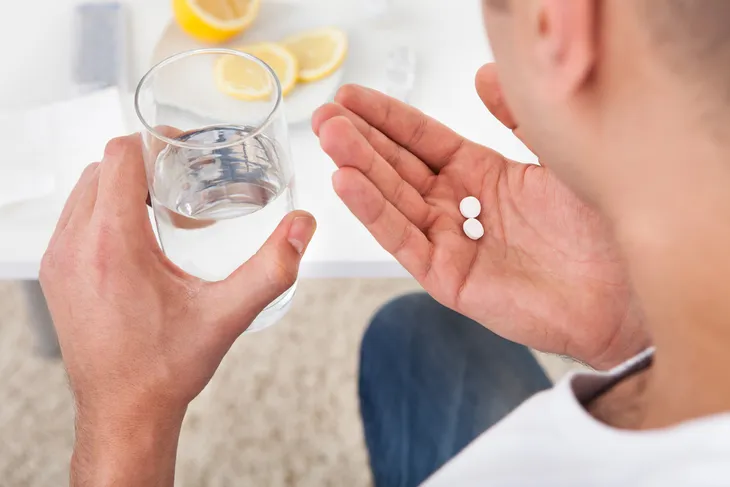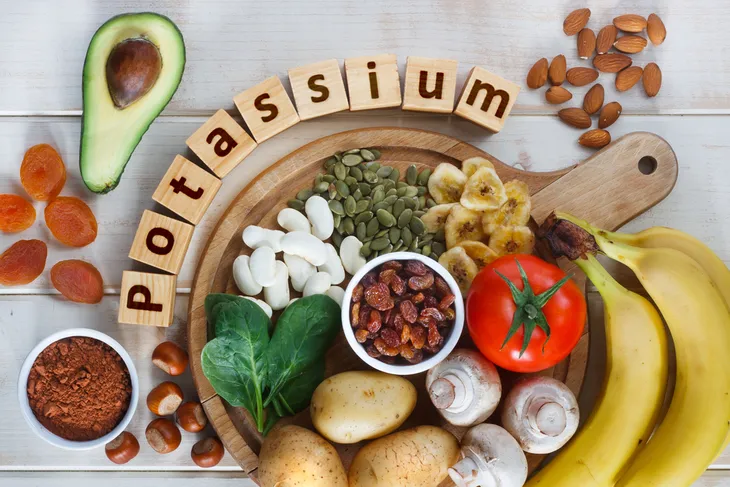Hypokalemia is a condition where potassium levels in the blood are lower than they should be. As potassium is often overlooked as an essential nutrient, this may not seem like an issue to be particularly concerned about. It should be, however, as potassium plays a role in many vital body functions.
According to WebMD, these include helping “muscles to move, cells to get the nutrients they need, and nerves to send their signals.” Additionally, the source says that potassium is of particular importance for the cells in your heart, as well as “keeping your blood pressure from getting too high.” Due to potassium’s importance, it’s helpful to understand what symptoms to expect if you’re low on the nutrient and also what might be causing this deficiency to happen. Read on the learn about the symptoms and causes of hypokalemia…
Symptoms
Muscle Weakness and Cramps
As mentioned in the introduction, potassium is necessary for the proper functioning of the body’s muscles. So, if you’re low on the nutrient, it stands to reason that you will likely experience some problems. Muscle weakness may be among the first signs, which the San Francisco Chronicle says can “cause a person difficulty when walking or holding objects.”
In addition, the muscles may twitch or cramp. These spasms, particularly when they occur in the leg, are often referred to as “charley horses”. If potassium levels continue to drop, the source warns that muscle paralysis can occur, and “if the paralysis involves the diaphragm, the muscle responsible for breathing, respiratory failure will occur.”
Fatigue
“Every cell in your body needs the right amount of potassium to function,” says Women’s Health magazine, therefore “a sustained dip can result in generalized fatigue.”
But, there are a wide variety of factors that can cause feelings of fatigue, which can make it hard to identify the symptom as being due to low potassium levels. As an example, however, the source says that “if your regular sweat session leaves you exhausted and you know you’re getting enough sleep, potassium might be the cause.”
Constipation
The walls of the stomach and intestines “contain muscle cells…that propel food through the digestive system,” explains Livestrong.com. When the potassium levels in your blood are low, these cells become sluggish, leading to a variety of digestion issues.
The source says that constipation is the most common complaint; however, if potassium levels drop to severely low levels, “the propelling movements of the intestines may stop entirely, causing nausea, vomiting, lack of appetite, bloating and abdominal pain.”
Abnormal Heart Rhythms
According to Livestrong.com, “The heart is able to work tirelessly thanks to a balance of important chemicals (such as potassium and sodium) between the heart cells and the bloodstream.” When hypokalemia occurs, however, the source indicates it can affect this balance and “disrupt the regular rhythm of the heart.”
These abnormal heart rhythms are known as arrhythmias and may cause you to feel like your heart is “pounding, fluttering, or about to skip out of your chest,” says Prevention. Such symptoms are considered severe, so if you experience them be sure to seek immediate medical attention.
High Blood Pressure
Low potassium levels can also cause a person’s blood pressure to increase. In speaking with Women’s Health magazine, Janet Brill, Ph.D., R.D., a Philadelphia-based nutritionist, says, “Potassium helps relax blood vessels…Without enough of it, they can become constricted, which causes blood pressure to soar.”
The San Francisco Chronicle adds that, as potassium levels decline, “…the body becomes more susceptible to the effects of sodium in the diet, which can increase blood pressure.” In some cases, this may cause fainting or feelings of faintness, especially when rising from a seated to a standing position.
Frequent Urination
In some cases, if hypokalemia persists for a lengthy period of time, kidney problems may develop. One such problem is that “people with a potassium deficiency usually urinate frequently and produce more urine than normal,” says Livestrong.com.
Also, water loss from frequent urination “triggers ongoing thirst and drinking more fluids to compensate,” which in turn leads to more frequent urination, and so the cycle continues. The source warns that, if left untreated, hypokalemia can cause kidney malfunction, and “people with pre-existing kidney disease are vulnerable to kidney failure.”
Tingling and Numbness
Low levels of potassium in the blood can also cause feelings of tingling and numbness, known as paresthesias. It typically occurs in the extremities, such as the fingers, toes, hands, or feet, but Livestrong.com indicates it “may radiate out into other areas of the body, including the arms and legs.”
As potassium is an essential nutrient to proper functioning of the body’s nerves, the source says “declining levels can affect the electrical impulses passed from the skin and muscles to the spinal cord and brain, leading to a loss of sensation along the outer extremities.”
Causes
Diuretics
Although there are many different causes of hypokalemia, the Mayo Clinic indicates the most common is “excessive potassium loss in urine due to prescription medications that increase urination.” These medications are known as diuretics (or water pills), and “are often prescribed for people who have high blood pressure or heart disease.”
Because potassium loss through urination is a common side effect of diuretics, such as hydrochlorothiazide (Hydrodiuril) or furosemide (Lasix), MedicineNet.com says that individuals who are prescribed these medications “often have their potassium levels monitored.”
Vomiting and Diarrhea
Low potassium levels can also occur due to vomiting or diarrhea. While these symptoms can happen as a result of a temporary illness, such as gastroenteritis (the “stomach flu”), Livestrong.com indicates that they may also be due to someone suffering from an eating disorder.
With bulimia, in particular, self-induced vomiting is very common, as is excessive laxative use over a long period of time, which are both common causes of hypokalemia. People with bulimia engage in such behaviors (called purging) in an attempt to prevent weight gain from all of the food they consume during a binge-eating episode.
Medication Side Effect
In addition to diuretics, hypokalemia may occur as a side effect of taking a variety of other medications. When taken in large doses, the University of Arizona says that certain antibiotics, such as “penicillin, ampicillin, nafcillin, or carbenicillin can induce renal potassium excretion.” The source also indicates, “The same effect can occur with aminoglycoside therapy and amphotericin B.”
Merck Manuals adds that other drugs, such as insulin, albuterol, and terbutaline, “cause more potassium to move from the blood into cells and can result in hypokalemia,” although typically only on a temporary level “unless another condition is also causing potassium to be lost.”
Improper Diet
Although it is possible, hypokalemia rarely occurs as a result of insufficient potassium intake in one’s diet. The reason is that the nutrient is readily available in a variety of natural food sources, including sweet potatoes, tomatoes, beans, beets, and watermelon.
In some cases, however, this malnutrition may be intentional, as with those who have anorexia. As anorexia is an eating disorder “that involves prolonged fasting and starvation,” Livestrong.com says hypokalemia is common, as these individuals “may not be consuming enough potassium-containing foods.”
Alcohol Abuse
Alcohol, especially when consumed in excessive amounts, negatively affects your entire body, and potassium levels are no exception. Livestrong.com explains that this is because “alcohol use causes imbalances of electrolytes, the electrically conductive ions in body fluids, which affects potassium levels.”
The source goes on to explain that these imbalances “interfere with normal body processes by altering the chemical composition and concentration of fluids throughout your body.” Therefore, it’s best to watch your alcohol intake in order to prevent it from causing hypokalemia.















